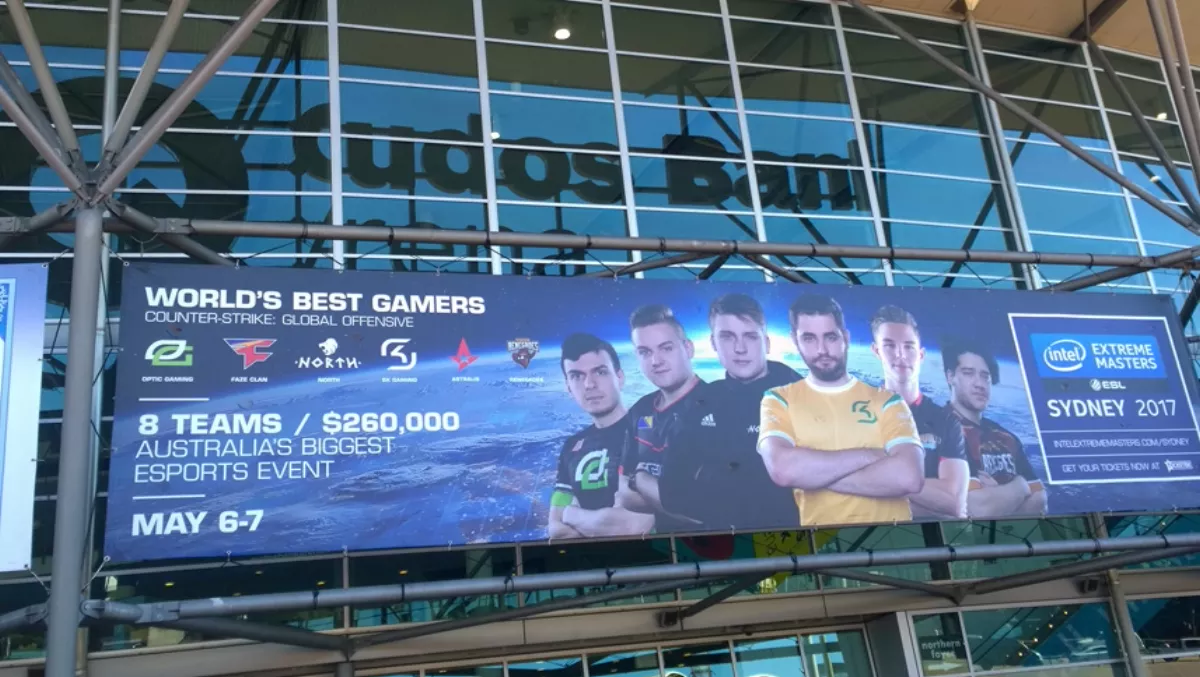
Esports: the future of spectator sport?
Over the weekend of 6th and 7th May, Qudos Arena in Sydney's Olympic Park, site of the Sydney 2000 Olympic Games, hosted a very different type of sport. As a guest of Intel, I checked out the finals of the Intel Extreme Masters Counter-Strike: Global Operations esports tournament.
If someone had told me seventeen years ago that one day I'd be watching a live tournament, based on the 2000 Counter-Strike Half-Life mod, along with thousands of others on a huge Australian arena, I wouldn't have believed you.
But that's exactly what I did. And I'm still trying to process it.

The Intel Extreme Masters first foray into Australasia marked a major expansion for the ESL tournament. The event kicked off the IEM's twelfth season of the longest running event series in global pro gaming and video game history.
Once thought of as just a bizarre fad, esports competitions are now big business and attaching huge audiences.
The Season 11 World Championship in Katowice, Poland, was held in February, achieving some record-breaking results to become the biggest event in esports history. There were 173,000 live attendees, 46 million online views and 340,000 viewers tuning in to the VR broadcast.

At the Sydney event teams from around the world competed for a prize pool of AUD$260,000, with Brazilian team SK Gaming taking home the trophy.
Part esports event, part PC gaming convention, Sydney's world-class Qudos Arena also served to promote the technology. Both mainstream stores such as Harvey Norman and JB Hi-fi were joined by local PC component suppliers like MSY and Mwave. Hardware Vendor such as Alienware, Asus and MSi were also in attendance show of their laptops and desktops, with a lot of them running VR demos.

Of course, Intel, as the main event sponsors, had a huge presence, promoting their 7th generation i7 CPU running in all the latest desktops and laptops. Row after row of high-spec laptops offered attendees the chance to try a variety of different VR titles with little or no queuing.
Speaking to George Woo, Esports Marketing Manager at Intel, he sees virtual reality as being a game-change for esports, but we've still got a way to go. That hasn't stopped Intel dipping their toes in the water, sponsoring a weekend-long Unspoken VR tournament.
Walking the halls and corridors of the Qudos Arena, watching the fans pass by, I could easily be about to watch a rugby match. With fans sporting their favorite teams' jerseys like the Aussie Renegades or the Norwegian North (both of whom were knocked out in the playoffs), it's like a proper sporting event. I may have raised an eyebrow or two over the weekend, but to these twenty-somethings waving their pints of beer towards the stage in support of a particularly canny kill was something else, it IS a proper sporting event.

Whilst I couldn't really appreciate the real-time editing of the round action on the huge screens, I could still feel the excitement and atmosphere. Add, live moment-by-moment commentary by extra-ordinarily zealous pundits, ultra-high production values and spectacular lighting, and you really can't help but be impressed.
With a huge following, an audience of 395 million in 2017 and a projected annual revenue of $1.4 billion by 2020, it's time to take esports VERY seriously. I may just have been a forty-something gamer casting a cynical eye over proceedings, but there was no doubt that I was seeing the future of video games as a spectator sport at the Intel Extreme Masters.


